"Is eucalyptus safe for cats?" This seemingly innocent question has prompted cat owners worldwide to delve deeper into the potential risks associated with this aromatic plant.
In this article, we will explore the unsettling experiences of cat owners and discuss the potential dangers of eucalyptus for cats. Through real-life stories and expert insights, we aim to provide clarity and awareness about the hidden perils of eucalyptus for cats.
If you are a cat owner and want to protect your furball friends from harm, scroll down to check it out.
Is Eucalyptus Toxic To Cats: Real-Life Stories
reddit iframe loading
Reddit user u/BPDprisoner shared a heart-wrenching story about their kitten's near-fatal encounter with essential oils. After purchasing a diffuser for their apartment, they returned home to find their kitten in a dire condition—limp and barely breathing. Luckily, a doctor saved the kitten's life. The culprit? Essential oils, one of which is eucalyptus.
reddit iframe loading
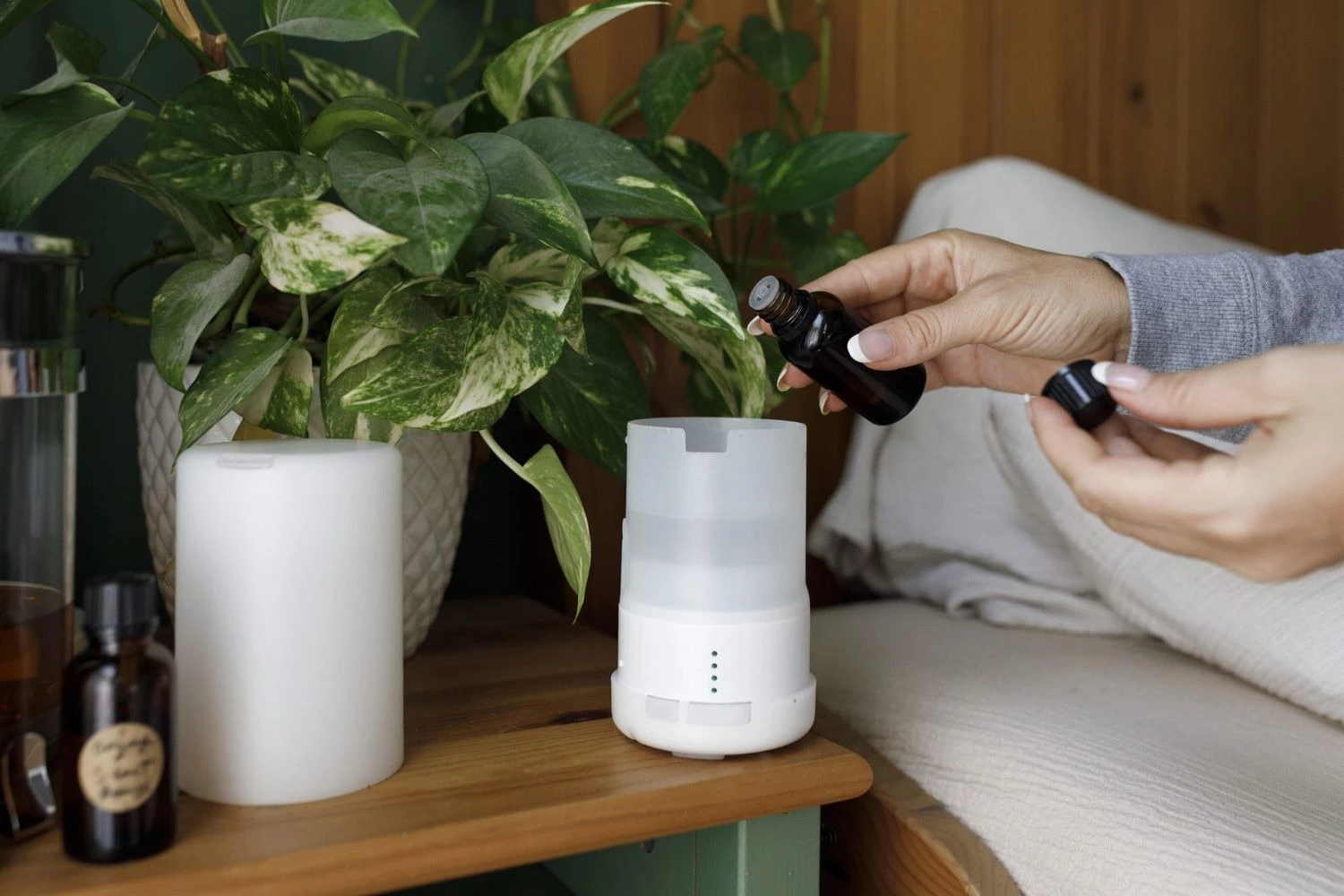 Source: Google Images
Source: Google Images
On January 7, 2018, Sue Murray shared a story about accidentally harming her cat, Ernie, without realizing it on her Facebook account. She had been using a diffuser in her home that spread eucalyptus oil into the air to help with her stuffy nose.
At first, Ernie seemed fine, but after a few days, he became tired, wobbly on his feet, and started drooling a lot. Sue's husband looked up eucalyptus oil on the internet and found that it can be harmful to cats. It turns out cats can't break down this oil in their bodies. Sue rushed Ernie to the vet because, without medical help, it could have been really bad!
So is eucalyptus safe for cats? Is eucalyptus poisonous to cats? Should cat owners keep eucalyptus far from the reach of curious pets to ensure their safety and well-being? Keep reading to find the answer!
Is Eucalyptus Safe For Cats?
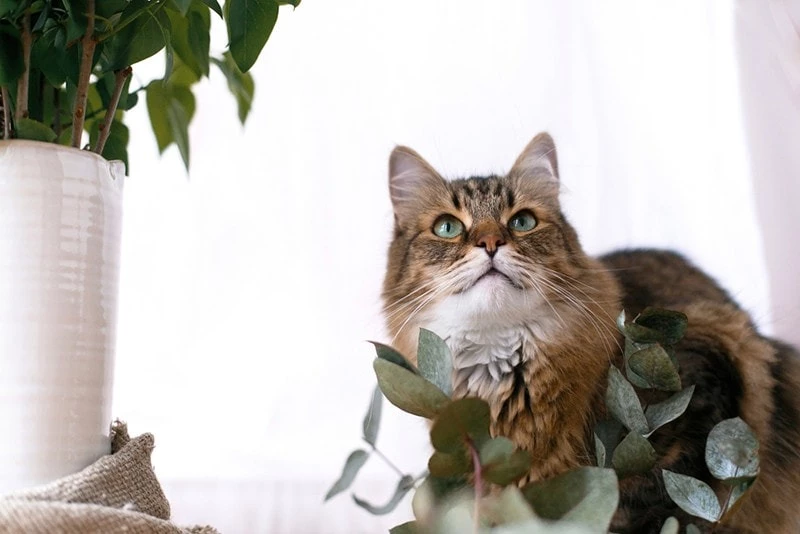 Source: Google Images
Source: Google Images
Eucalyptus is generally considered unsafe for cats. Eucalyptus contains essential oils, including eucalyptol (cineole), which can be toxic to cats when ingested, inhaled, or absorbed through the skin. Cats have a unique physiology, and their livers may not efficiently metabolize certain compounds found in eucalyptus, leading to adverse reactions.
On September 28, 2023, Cats Protection, a non-profit organization based in the United Kingdom, posted on their Facebook account to alert people that essential oils like eucalyptus are toxic to cats.
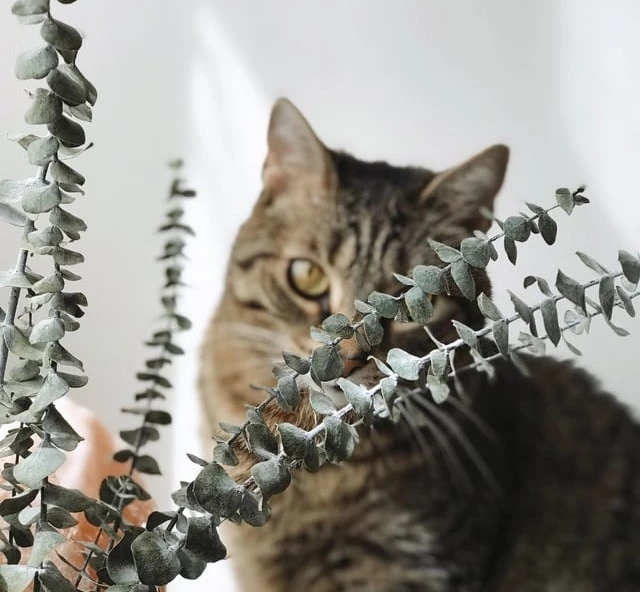 Source: Google Images
Source: Google Images
The American Society for the Prevention of Cruelty to animals (ASPCA) says that some essential oils, like eucalyptus, orange, and lemon, can make cats shaky. They also warn about products that have these oils.
According to Tina Wismer, who works at the ASPCA Animal Poison Control Center, cats can take in essential oils through their skin or by licking them. Sometimes, pet owners accidentally make their cats sick when they use things with lots of these oils to treat other problems, like cuts or ear mites.
So, it's essential to make sure that eucalyptus and cats shouldn’t be under the same roof!
Is Dried Eucalyptus Safe For Cats?
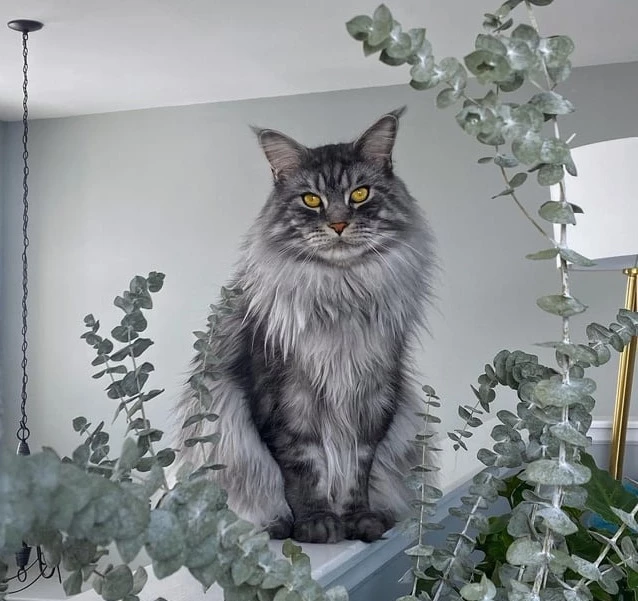 Source: Google Images
Source: Google Images
Dried eucalyptus is generally considered toxic for cats, just like fresh eucalyptus and eucalyptus essential oils.
What Are The Signs Of Eucalyptus Poisoning In Cats?
Exposure to eucalyptus in cats can result in a range of symptoms, including but not limited to:
- Vomiting
- Diarrhea
- Drooling
- Difficulty breathing
- Lethargy
- Muscle tremors
- Central nervous system depression
- Seizures
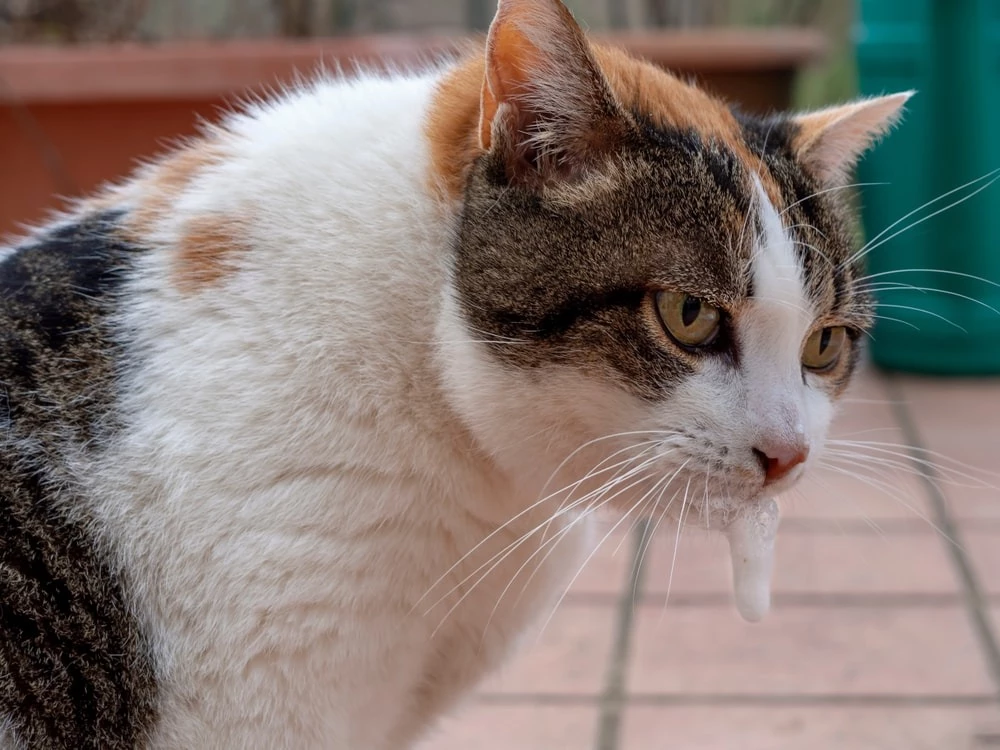 Source: Google Images
Source: Google Images
Symptoms of eucalyptus poisoning in cats might appear quickly after exposure, but sometimes it can take a few hours. So, even if your cat seems fine right after exposure, don't assume everything is okay. Keep an eye on them for a while, to be sure.
What To Do If Your Cat Eats Eucalyptus?
If your cat eats eucalyptus, you should take immediate action to ensure their safety. Here are the steps to follow:
1. Contact Your Veterinarian:
Call your veterinarian or an emergency veterinary clinic right away. Describe the situation and provide details about the amount and type of eucalyptus your cat ingested. Follow their instructions carefully.
You can call 24-hour poison hotlines for help. The ASPCA Poison Control is at (888) 426-4435, and the Pet Poison Helpline is at (855) 764-7661. These hotlines can assist you and your vet in taking care of your pet if they've been exposed to something harmful.
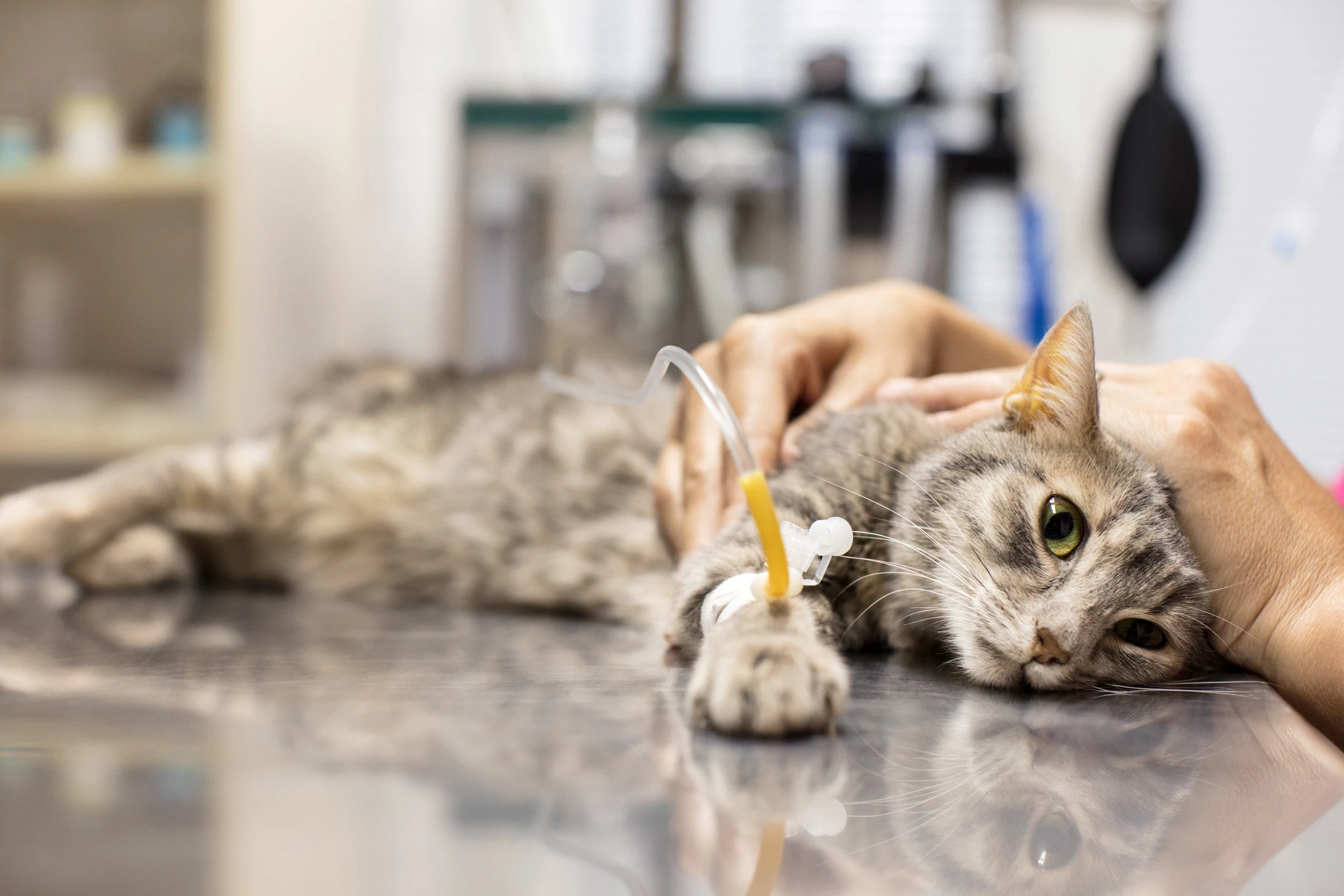 Source: Google Images
Source: Google Images
2. Do Not Induce Vomiting:
Unlike some toxins, eucalyptus is not effectively treated by inducing vomiting in cats. Do not attempt to make your cat vomit without specific guidance from a veterinarian.
3. Monitor Your Cat:
Keep a close eye on your cat's behavior and symptoms. Look for signs of poisoning, such as vomiting, diarrhea, drooling, lethargy, difficulty breathing, or seizures.
 Source: Google Images
Source: Google Images
4. Keep The Eucalyptus Container:
If you have the eucalyptus container or know the type of eucalyptus your cat ingested, share this information with the veterinarian. It can help them determine the severity of the poisoning.
5. Transport Safely:
If your veterinarian recommends immediate treatment, transport your cat to the clinic safely. Use a carrier or box to ensure their safety during the journey.
6. Follow Veterinary Instructions:
Once you reach the veterinary clinic, follow the instructions of the veterinarian for treatment. Treatment may involve supportive care, activated charcoal administration, intravenous fluids, or other specific interventions based on the severity of the poisoning.
Remember that early intervention is crucial in cases of poisoning, so it's essential to seek professional veterinary assistance promptly if you suspect your cat has ingested eucalyptus or any potentially toxic substance.
Conclusion
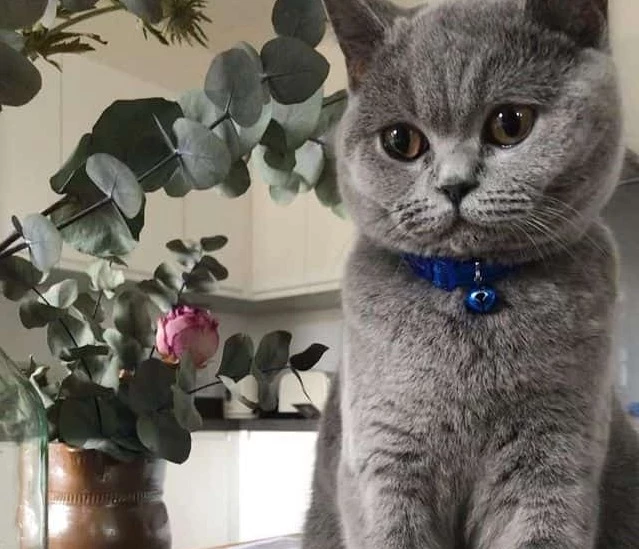 Source: Google Images
Source: Google Images
In conclusion, the cautionary tales shared by cat owners explain why it's vital to be careful and know about possible dangers in our homes, even in things that seem harmless like eucalyptus. Is eucalyptus safe for cats? No, it is toxic to cats. To ensure the well-being of our beloved cats, it is crucial to exercise vigilance, avoid eucalyptus and other toxic essential oils, and seek professional guidance when needed.